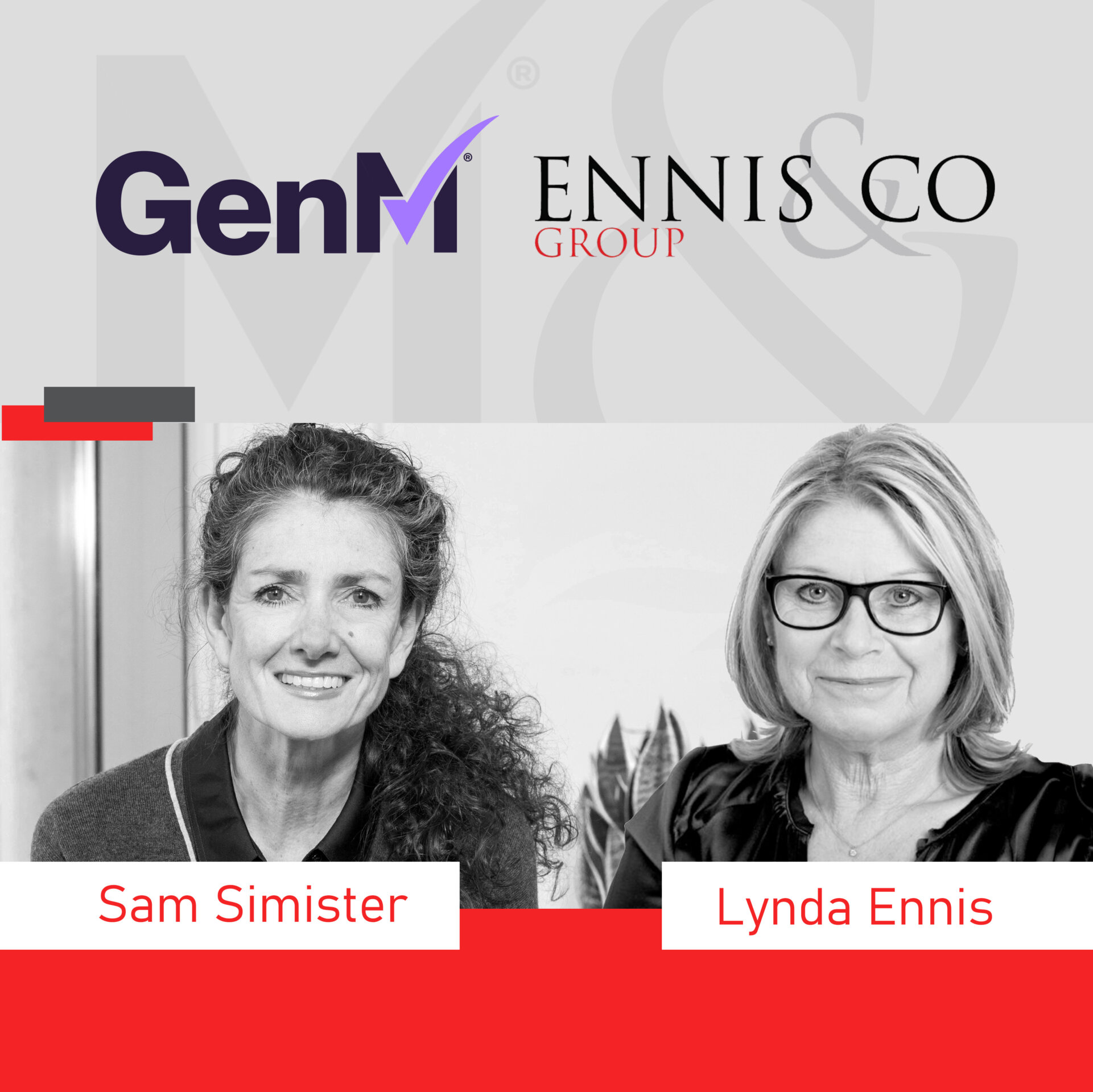During DE&I research into what businesses are doing to support menopausal women in their workforce, I recently connected with a remarkable woman whose company is driving a transformation of the menopause consumer market.
Her name is Sam Simister, a 58-year-old business high-flyer who left her position as a Board Director at Innocent Drinks a few years ago to co-found GenM.
Through the development of its menopause-friendly symbol – the MTick – the company is helping many leading consumer brands to signpost products that ease the various symptoms, physical and psychological, of perimenopause and menopause.
If only the MTick had been around when I was experiencing some of those symptoms myself and, unable to take HRT, had no access to products to alleviate them.
The menopause has historically been a taboo subject, but the work of GenM is changing the narrative.
Sam and her co-founder have big ambitions for the company in terms of global expansion and possibly extending the MTick to services in addition to consumer products.
I see a lot of potential in the services route, and am already thinking about how Ennis & Co, as an automotive executive search business, can work with GenM to support menopausal candidates for senior roles.
Sam is very open to new ideas and, to help spread the word, here are some of the topics we discussed during a visit to our offices recently about the thinking behind GenM and her vision for the future.
LYNDA ENNIS: Sam, what was the motivation behind leaving your successful career at Innocent Drinks to establish GenM?
SAM SIMISTER: From 2013, I was on the board of Innocent and heading up our international expansion in Japan and China, which involved spending a lot of time on a plane. Then one day, in 2016, I had what turned out to be a nasty panic attack whereby I couldn’t leave the house. My husband was worried because he didn’t recognise me.
It wasn’t just that. I noticed that I was off my game. I wasn’t performing well at work and was struggling with all sorts of things. My memory was poor and I was having dreadful night sweats. What I didn’t realise at the time was that I was that perimenopausal, and I was woefully unprepared.
I was very lucky to have a wonderful CEO, and we adapted my role so that I could get my mojo back and still be retained in the business. But it got me thinking and it got me researching, and it got me looking for products that could support quite a few of the symptoms that were just naturally occurring through changes to hormones.
There was very little medical advice and very little product, and I started to get really fed up because I knew this was a natural transition. It wasn’t a life choice.
Around that time, I bumped into a good friend of mine, Heather Jackson, who I’d known through business, and she was having an even tougher time than I was. So, we decided that we would do something about it. But we couldn’t just run off into the sunset like Thelma and Louise. No-one would take us seriously. So, we commissioned a piece of research in 2020, which we called the Invisibility Report, to survey 2,000 women in midlife and amplify their voices. The stats were extraordinary and gave us the confidence to launch GenM.
LYNDA ENNIS: Can you explain what GenM does and how it has developed since the company was launched in 2021?
SAM SIMISTER: GenM is the menopause partner of brands. We exist to ignite brands and organisations to recognise that an audience of 15.5 million menopausal women in the UK and a billion globally are going through a natural transition and are telling society they want more support.
We launched with an open letter to The Guardian and, in six months, we had over 40 brands on board what we call the GenM Collective, including Marks & Spencer, Next, Boots, Holland & Barrett and a whole bunch of brilliant challenger brands, all of whom had been started by women because they couldn’t find products to support, ease or relieve their symptoms.
It was quite an interesting mix. We realised we really had something here, but what to do with it? Working with a brilliant agency in Leeds who helped with the business to business strategy, we were laying down the tracks as we were driving the train, but we went from strength to strength to strength.
One of things we decided to do was to put the research back out into field every year so we could be objective, and it was this insight that really drove the business. Today, we’re two and a half years old, and we’ve got over 100 brands on board, including all the big grocers, and we’re just about to launch in the US.
Our business model is a collective of responsible brands and organisations who, predominantly, offer products that can support or relieve one or more of the symptoms. We launched the MTick symbol in 2022, and brands have to prove they can meet the criteria, which we defined with the Boots legal team and pharmaceutical team. If the brands meet the criteria, we give them the symbol and they deploy it.
The retailers are now coming on board to deliver our vision, which is a menopause aisle in store and online. So, if you’re a woman looking for a product, you haven’t got to surf the internet for hours. You can go to a designated space and there’s an aisle that has product with the MTick that you can search, source and shop.
LYNDA ENNIS: What are the symptoms and signs of the menopause that GenM is addressing?
SAM SIMISTER: Working with the Boots pharmaceutical and legal teams and two medics that are part of the GenM Collective, we have identified 48 known physical, psychological and credible symptoms and signs of the menopause.
According to the data gathered by our first Invisibility Report, the most well known are hot flushes and mood swings, followed by brain fog or memory loss, insomnia, night sweats and weight gain. Interestingly, 51% of the 2,000 women surveyed could name only three symptoms, which highlights the need for better information to support women through the menopause.
LYNDA ENNIS: What criteria do products have to meet to qualify for an MTick?
SAM SIMISTER: We have four sets of criteria, and the product needs to meet one of them rather than all of them. One is that the product is backed by authorised medicinal, cosmetic or health claims, while another is that the product has been tried and tested by menopausal women in clinical user trials that evidence a benefit for a symptom or sign. A third criteria is that the product has verified technology or functionality to support a symptom or sign, a good example being sweat-wicking textile technology for garments or bedding materials. The last criteria is Trustpilot, which provides testimony from a large community that a product works for a particular symptom.
LYNDA ENNIS: Given that you are revisiting your field research on a yearly basis, have you noticed any movement of the needle in terms of menopause awareness and access to menopause-friendly products? And what are the opportunities for brands to cater for this market.
SAM SIMISTER: Over the last three years, we have seen women becoming more aware of the terms perimenopause and menopause. Unfortunately, the needle hasn’t moved on the number of women who can name more than three to five symptoms, and so it is all the usual, well-known symptoms that are being called out.
The lived experience has really stood still. Each year we look at stats around how a woman feels. Does she still feel invisible? Does she still feel overlooked? Can she still find access to medical support products to support her symptoms? That stat has not moved at all. Our hypothesis is that awareness is improving and conversations are happening. It doesn’t matter whether you look through the celebrity lens, the commercial lens, the medical lens or the political lens, the topic of menopause is everywhere. But what happens is that when a woman realises that she might be going through the menopause, the solutions to support her just aren’t there.
While 51% of women use HRT, the other 49% want a more holistic, natural playing field to find products to ease their symptoms. Brands have a huge responsibility to serve this market. They not only employ the majority of this audience, their customers are the majority of this audience.
That is why I think there is such engagement with the MTick symbol. The menopause market is growing enormously, with Forbes projecting it will be worth $600 billion globally by 2030. Tesco know this, having seen it in their Dunnhumby data, and it’s why they jumped at this opportunity. There are 21 million households with a Tesco Clubcard, and they see this audience really demanding support. This audience has got the money to spend and it’s very discerning. It wants the want the product and it wants the signposting.
LYNDA ENNIS: Do you think there is a potential in extending GenM’s remit to services as well as consumer products?
SAM SIMISTER: I would like there to be an MTick for services. We’ve got the MTick for product and we have the criteria. Services are different, though, and as I sit here now, I don’t have the experience to build the criteria for services. I know this is an area that you are very keen to explore, Lynda. Using the example of your automotive executive search business, one of the changes that happens to a lot of women during their perimenopausal and menopausal years is a drop in confidence levels, and so for a woman looking to take her next career step, there is an opportunity there to provide support as a menopause-friendly business to help rebuild that confidence and set her up for success.
In such a scenario, it would have to be the case that the company where the woman was being placed would have to continue with that support and join the dots. In other words, it would be about creating a more holistic ecosystem whereby, in a male-dominated industry such as automotive, women would feel more comfortable joining a company knowing that they would have the support they needed.
The stats tell us that that this kind of support just isn’t there in the workplace, and in certain sectors such as legal and financial, women simply can’t have conversations about their symptoms because the menopause is still a taboo subject.
LYNDA ENNIS: Thank you, Sam, for sharing your story and your insights about the menopause market. As a final question, what are your hopes for GenM or the next five years?
SAM SIMISTER: The vision is that the MTick will be a global globally recognised sign – a bit like the vegan V, if you like, but bigger. We want brands to really get behind this to educate, raise awareness but, most importantly, to get behind the symbol.
We are going out for investment, so we will have significant funds at the end of the year to do an above-the-line marketing campaign because we now recognise that, in our third year, we need to bring the consumer into the conversation. Brands are getting it, but the consumer needs to know more about the MTick and to understand it.
So it’s really very simple. In five years’ time, we just want this symbol to be really recognised for sourcing and shopping for products. If I can, I would love to extend it out to services, whether it is an executive recruitment business or insurance for women. We just need to think about what the criteria will be for an MTick for services.
We’re also taking the company global. We’re launching in the US this year, and we hope to then take it out to other progressive regions that are ready to normalise this conversation. With a billion menopausal women worldwide, the numbers are just so big, and it’s a market that will always be there.






